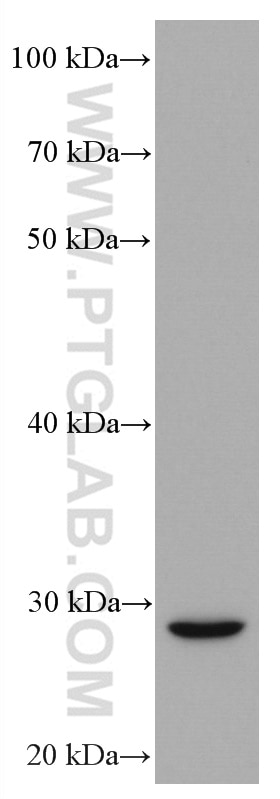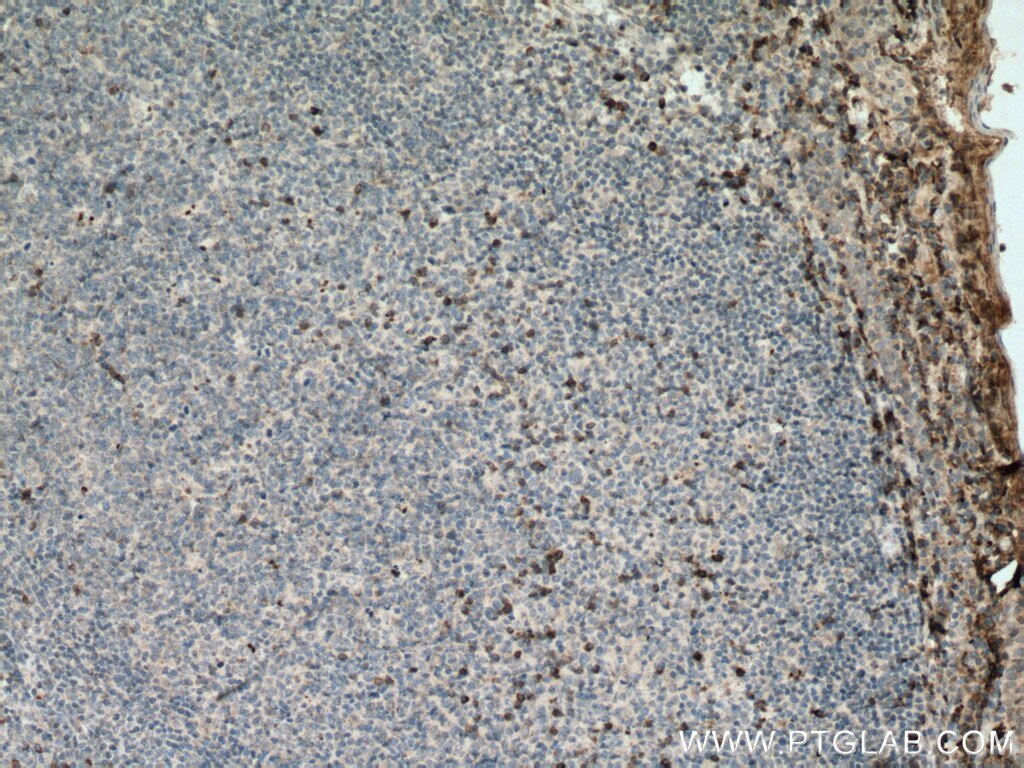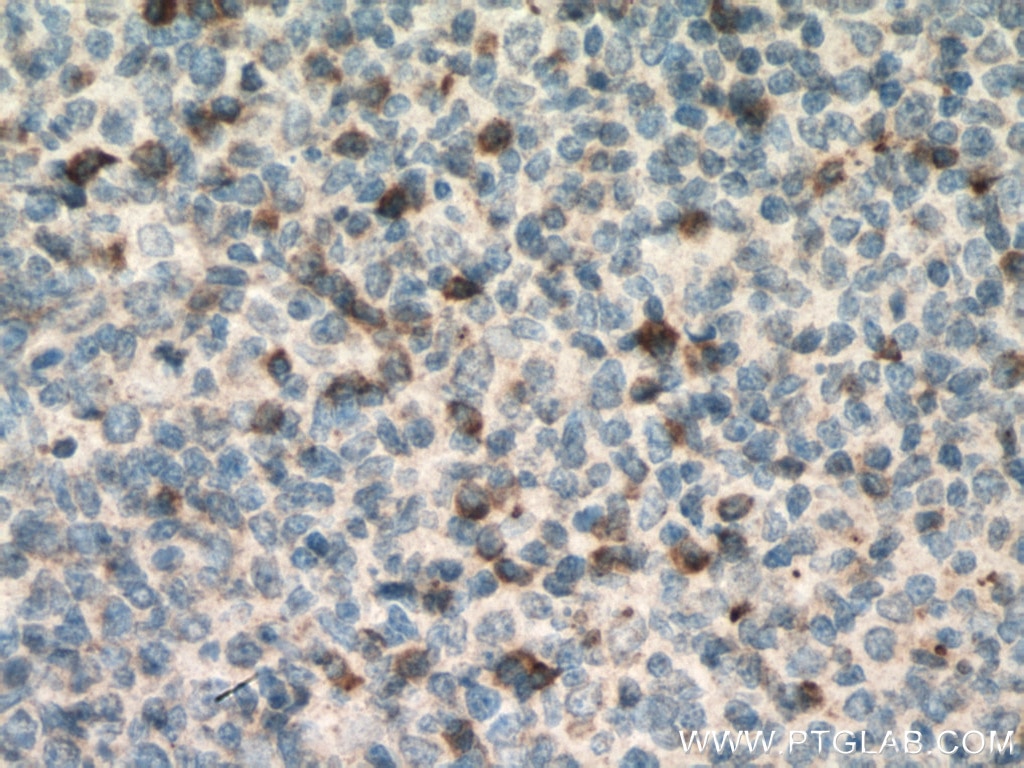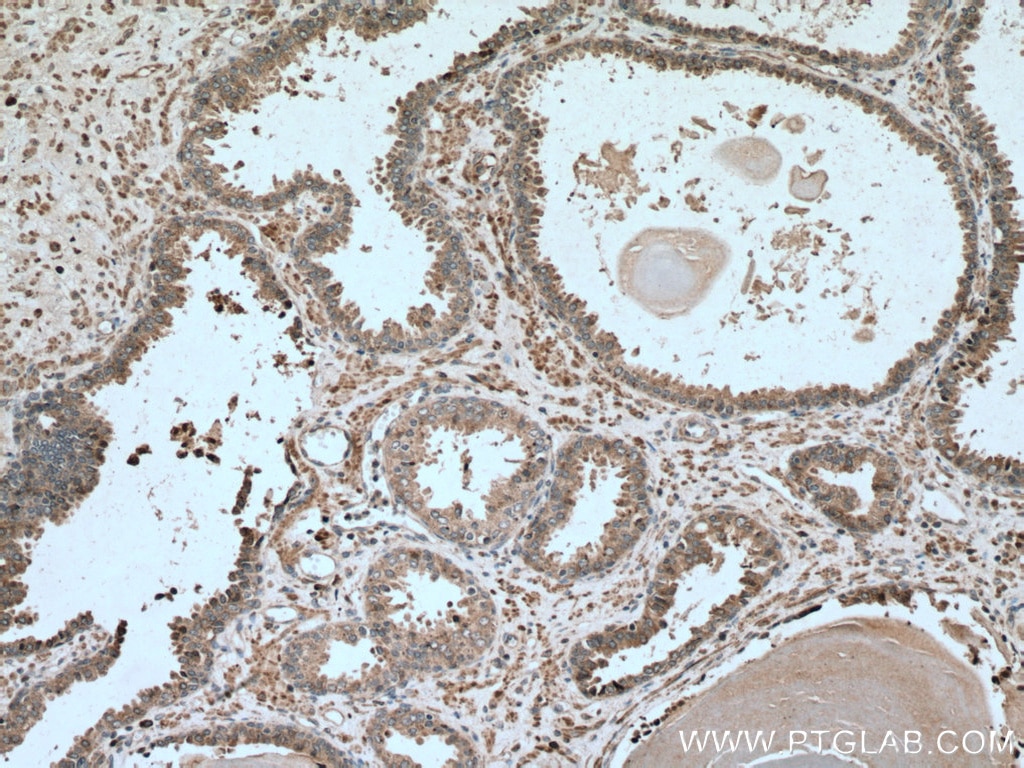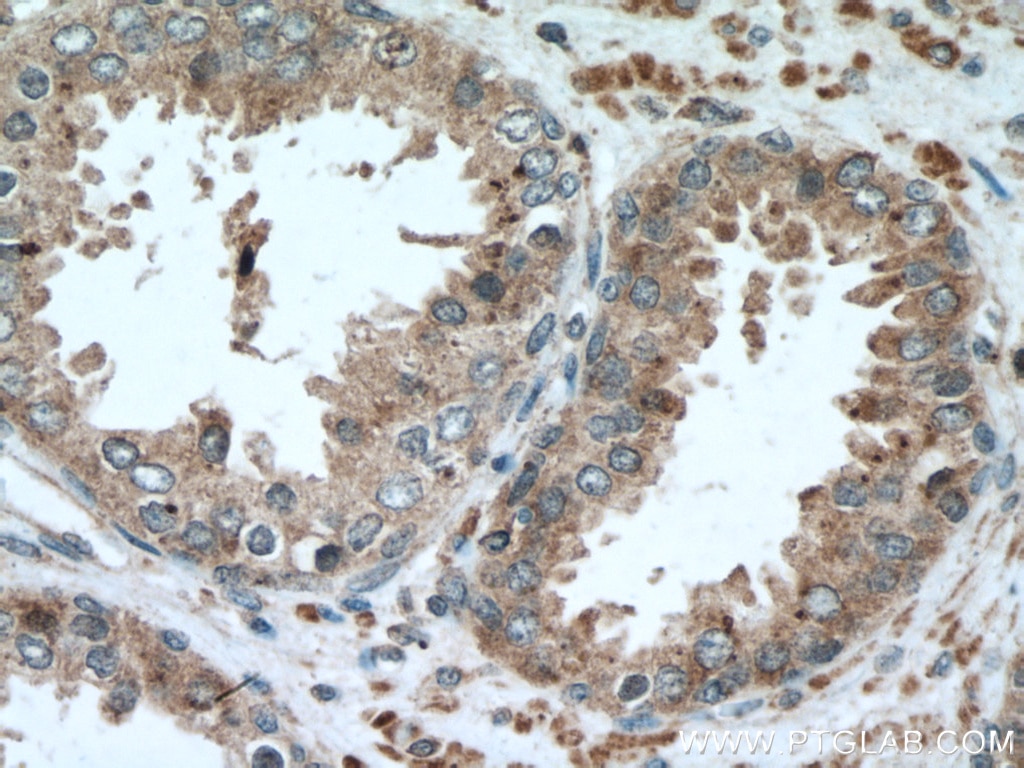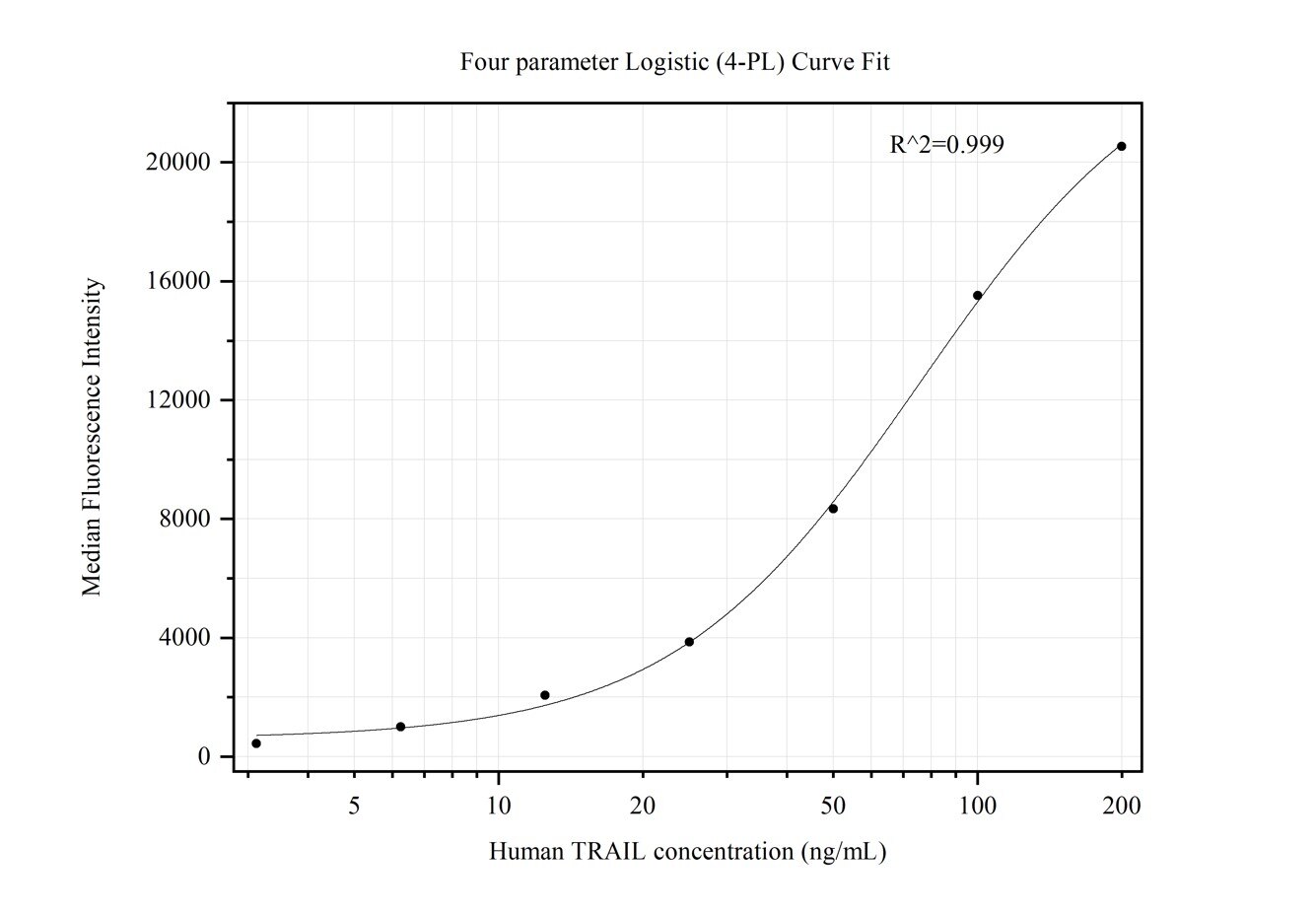TRAIL/CD253 Monoklonaler Antikörper
TRAIL/CD253 Monoklonal Antikörper für WB, IHC, Cytometric bead array, Indirect ELISA
Wirt / Isotyp
Maus / IgG1
Getestete Reaktivität
human
Anwendung
WB, IHC, Cytometric bead array, Indirect ELISA
Konjugation
Unkonjugiert
CloneNo.
1B9B4
Kat-Nr. : 66756-1-PBS
Synonyme
Geprüfte Anwendungen
Produktinformation
66756-1-PBS bindet in WB, IHC, Cytometric bead array, Indirect ELISA TRAIL/CD253 und zeigt Reaktivität mit human
| Getestete Reaktivität | human |
| Wirt / Isotyp | Maus / IgG1 |
| Klonalität | Monoklonal |
| Typ | Antikörper |
| Immunogen | TRAIL/CD253 fusion protein Ag25746 |
| Vollständiger Name | tumor necrosis factor (ligand) superfamily, member 10 |
| Berechnetes Molekulargewicht | 281 aa, 33 kDa |
| Beobachtetes Molekulargewicht | 28-30 kDa |
| GenBank-Zugangsnummer | BC032722 |
| Gene symbol | TRAIL |
| Gene ID (NCBI) | 8743 |
| Konjugation | Unkonjugiert |
| Form | Liquid |
| Reinigungsmethode | Protein-G-Reinigung |
| Lagerungspuffer | PBS only |
| Lagerungsbedingungen | Store at -80°C. 20ul Größen enthalten 0,1% BSA. |
Hintergrundinformationen
TNFSF10/TRAIL (tumor necrosis factor superfamily member 10) is a typical death ligand expressed on natural killer cells and cytotoxic T lymphocytes. This protein preferentially induces apoptosis in transformed and tumor cells, but does not appear to kill normal cells although it is expressed at a significant level in most normal tissues. TNFSF10 induces apoptotic cell death in cancer by binding to its functional death receptors, death receptor (DR) 4 (TNFRSF10A/TRAIL-R1) and DR5 (TNFRSF10B/TRAIL-R2) to activate the extrinsic apoptosis pathway. TRAIL also activates c-Jun N-terminal kinase (MAPK8/JNK) and the transcription factor nuclear factor-κB (NFκB). The binding of this protein to its receptors has been shown to trigger the activation of MAPK8/JNK, caspase 8, and caspase 3.
